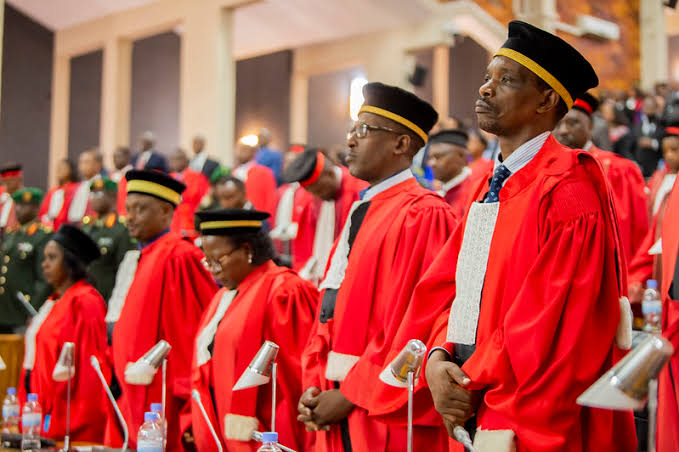The Legal Management Performance System (JMPS) is a virtual system that Rwanda’s legal branch has just shown off. This will make it possible for the government to evaluate the work of judicial workers and make sure that the court system is in the best shape possible.
It’s interesting that this isn’t the first time the court has tried to use technology to improve its efficiency. In 2015, the government released a tool called the Integrated Electronic Case Management System (IECMS), which made it much easier for the courts, law enforcement, the prosecutor’s office, and other related groups to work together.
The JPMS will be used for many things, such as tracking success, allocating budgets, and keeping track of how things are done. It will also help keep track of how well staff is doing by using chores or milestones. Aside from making sure that Rwanda’s justice system works well, stakeholders expect the JPMS to encourage performance growth and bring attention to areas that need it most.
Read also: Kenya’s Lawyers Hub to help startups meet regulatory compliance
Chief Justice Faustin Ntazilyayo, who is the president of Rwanda’s Supreme Court, said that JPMS will build on the success of IECMS, a system that made it possible for the court to get better at using technology. He also said that JPMS will make sure that all the work that people in the justice system do is tracked and reviewed. She says that this new trend will be seen at every level of the law.
The JPMS is a change agent that supports the IECMS, according to Ntazilyayo. Running both simultaneously achieves “fair and timely justice” for everyone. JPMS is two-part. Judges and court registrars will use IECMS but upload their papers to JPMS for the first one. Court employees solely use the JPMS.
Some workers doubted this strategy, according to the Chief Justice. He believed they would eventually grasp the JPMS. He noted that if they learn about the procedures, “they will better understand their benefits and appreciate how they improve and streamline their tasks.”
Marie Alice Uwamahoro, a Rwandan Supreme Court Business Analyst, believes the JPMS will make it easier for judges to self-assess. JPMS would also detect things manual reviews missed by digitizing performance evaluation.
Rwandan judiciary tools advance technology
Rwanda has worked hard to unlock technology’s potential. Many African nations can mimic its Irembo platform, which provides many critical services online. It promised laptops for all teachers by 2025. If used properly, the JPMS tool can improve the judiciary. To ensure accuracy, managers should constantly upgrade the system.
In the end, technology is going to change almost every part of life, including how justice is given. Even though there are some problems, such as low digital literacy and a lack of internet access, investing in the project can help the African justice system in a big way. But tech innovations for government should be backed by the law to reduce the chances of problems when they are used.
Consider the ongoing dispute between Nigeria’s president, Bola Tinubu, and the two main opposition candidates, Atiku Abubakar and Peter Obi. Two months ago, the opposition asked the court to let them live stream the case, but the court said no. The request was not legal, which was one of the justifications given by the court. Therefore, new ideas must first receive government approval, no matter how good they may be.




